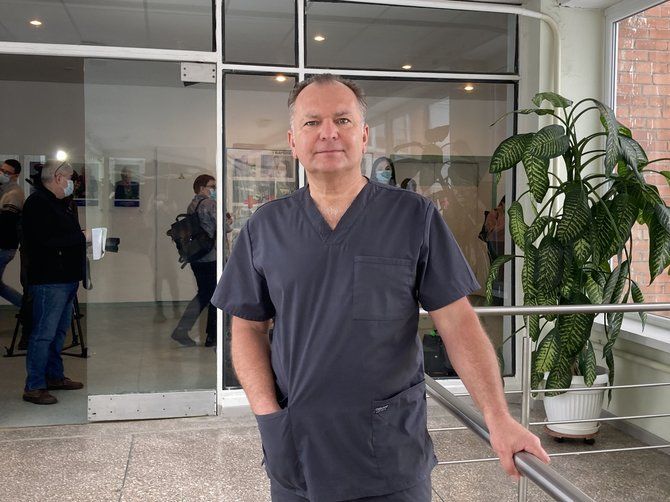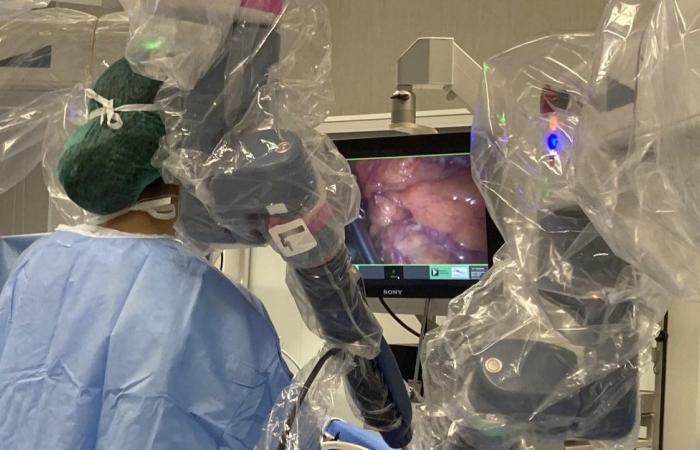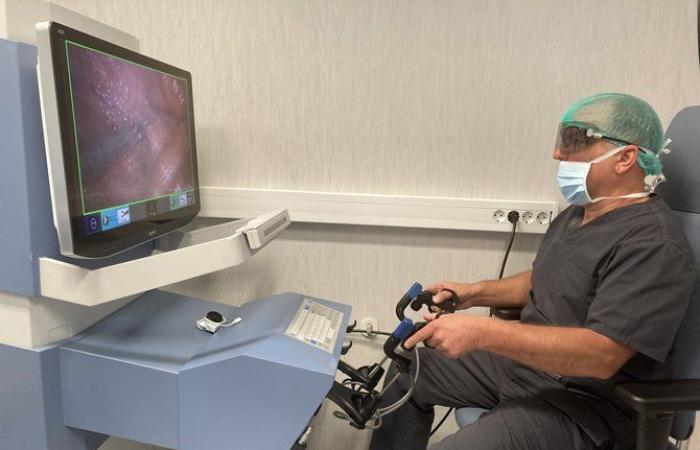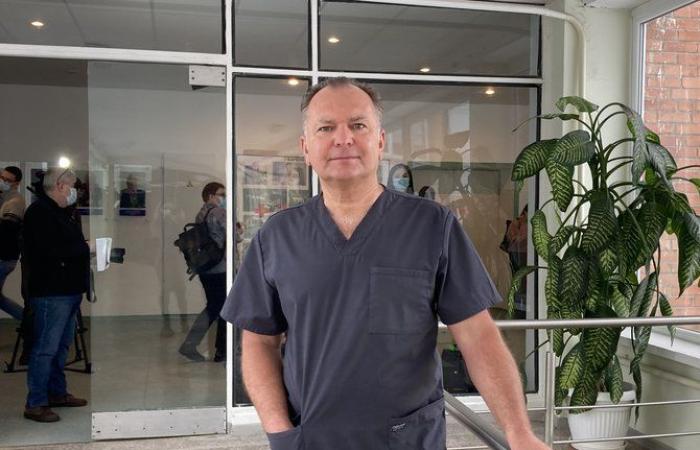Robotic surgery has been developed at Klaipėda University Hospital since 2018. About 900 operations were performed in four and a half years. So far, this hospital in the port city is the only one in the Baltic States that performs robotic operations.
As Raimondas Šiaulys, head of the hospital’s Obstetrics and Gynecology Clinic, said, robotic surgeries in Klaipėda are performed by surgeons in three fields: urologists, abdominal surgeons and gynecologists.
Aurelijos Jašinskienė/15min.lt photo/During the operation, the colon tumor was removed.
“Today is a special day for us – Professor Narimantas Samalavičius performed the first robotic surgery using artificial intelligence. It allows you to work much safer and plan certain actions in a particularly narrow space, it even warns that some places may be dangerous”, explained R.Šiaulys.
According to him, this opens up opportunities for the surgeon to work more smoothly. Speaking to reporters, he compared such an operation to driving after switching to a more modern vehicle with more electronics.
“The surgeon continues to operate, but with the help of a robot. Artificial intelligence allows for more accurate movements,” R. Šiaulys explained. Next week, he plans to perform a gynecological surgery himself with the help of artificial intelligence.
On Wednesday morning, Prof. N. Samalavičius performed two robotic operations with artificial intelligence. Both patients were diagnosed with colon cancer.
“This is a huge step in Lithuania and in European surgery in general,” explained the professor.
Aurelijos Jašinskienė/15min.lt photo/Surgeon prof. Narimantas Samalavičius is operating on a colon tumor.
According to him, artificial intelligence will allow for more accurate, precise operations, likely causing less extraneous functional damage.
“Artificial intelligence has several models: there are more and more of them every year and they are constantly being developed. In this case, two were used. The camera followed the surgeon’s movements – no special control of the camera was required. Visibility can be increased with the help of a special model. Certain measurements can be taken, such as hernias, when mesh is needed. In oncology, for example, the distance to the tumor is important,” said prof. N. Samalavičius.

Aurelijos Jašinskienė/15min.lt photo/Prof. Narimantas Samalavičius
He recalled that even ten years ago there was a debate about whether robotic surgery was necessary and what its future was. Now nobody asks such questions anymore. According to him, robotic surgery will soon – in a few years – appear in smaller hospitals as well.
In the long run, artificial intelligence will be able to perform certain tasks autonomously, without the guidance of a surgeon, he said. A year ago, it was announced that a robotic system had autonomously performed surgery on an animal.
Tags: Breakthrough medicine Lithuanians Europe operate artificial intelligence
-







